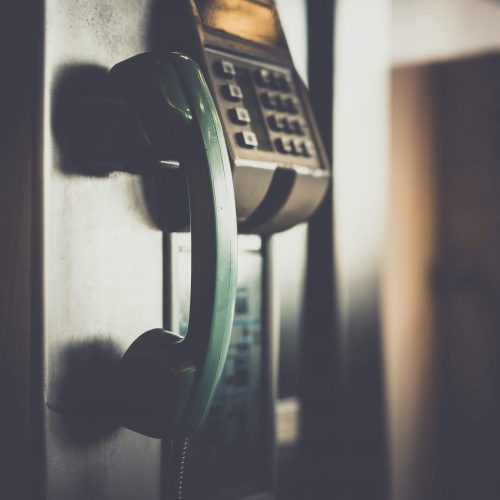Obsessive Compulsive Disorder (OCD) Helpline Number for Teens and Adolescents in Dallas, Texas
If you or someone you love is suffering from psychological distress brought on by obsessions and compulsions, an OCD mental health hotline in Texas is a valuable resource for teens and adolescents. Obsessive compulsive disorder can hinder everyday functioning and significantly affect emotional well-being, but you’re not alone. A mental health hotline is a phone call away.
What is a Mental Health Crisis Hotline Number for Teens and Adolescents, particularly with OCD?
An essential lifeline for youth grappling with severe psychological distress, including Obsessive Compulsive Disorder, is a mental health crisis hotline. These dedicated phone lines offer 24/7 access to trained professionals who can provide counseling, support, and resources, helping teens and adolescents cope with overwhelming emotions, including anxiety, stress, isolation, and suicidal thoughts related to OCD. For immediate help, the 988 suicide prevention hotline is available.
These emotional support lines are staffed with understanding professionals who listen, offer guidance, and help teens and adolescents navigate complex feelings, including those associated with OCD. They provide the attention needed during hard times. By reaching out for immediate emotional help, you can receive advice on managing crises, gain access to necessary resources, and learn effective strategies to support your child. Remember, reaching out is a brave step towards healing, and mental health hotlines are here to support you throughout the journey.
BasePoint Accepts Insurance for Teen OCD
Our complimentary assessment with a licensed clinician will provide you with a recommendation for the appropriate level of care for your teen struggling with OCD. We can also check your insurance coverage levels.
Call us today to schedule a complimentary same-day OCD assessment at (972) 357-1749 or complete our inquiry form.
Teen OCD Therapy & Treatment Admissions form
Contact BasePoint Academy Today
Contact us today to schedule a free confidential assessment for your teen with a licensed clinician.
You can also get in touch to talk with our mental health experts about treatment needs, care options and your insurance coverage levels.
Call: (972) 357-1749Check Your InsuranceUnderstanding Obsessive-Compulsive Disorder (OCD) in Teens and Adolescents
Obsessive Compulsive Disorder (OCD) can be particularly challenging for teens and adolescents, a time already marked by significant emotional and psychological changes. This disorder is more than occasional worrying or wanting things to be perfect. OCD involves intrusive, persistent thoughts (obsessions) that cause intense anxiety, leading to repetitive behaviors or mental acts (compulsions) performed to reduce that anxiety.
It’s estimated that at least 1 in 200 kids and teens have OCD in the United States. Signs of OCD in teens and adolescents can involve spending excessive amounts of time on rituals like washing hands, checking locks, or arranging items, which can interfere with daily life, schoolwork, and relationships. It can include obsessive concerns about germs, safety, or symmetry. They might also struggle with intrusive thoughts they can’t control, causing significant psychological distress and interfering with their daily activities or social interactions. Recognizing OCD early is crucial for effective mental health treatment. Treatments like Cognitive Behavioral Therapy (CBT), particularly Exposure and Response Prevention (ERP), are effective in managing OCD symptoms. OCD is a treatable condition, and with the proper support, teens and adolescents can learn to manage their symptoms and lead fulfilling lives. If you’re looking for immediate guidance, call our free OCD help hotline today.
What Does an OCD Episode Look Like in My Child or Teen?
An OCD episode in your child or teen often involves them getting stuck in a cycle of obsessive thoughts and compulsive behaviors. They might become overly focused on fears related to contamination, safety, or perfection. For example, they could wash their hands repeatedly, check doors multiple times, or spend hours ensuring things are perfectly arranged.
These behaviors are driven by intense anxiety and a need to relieve the distress caused by their obsessions. For instance, a teen with contamination OCD might avoid touching surfaces or spend excessive time cleaning. Someone with checking OCD could feel the need to repeatedly confirm that lights are off or doors are locked, despite knowing they’ve already done so. These rituals can be exhausting and disruptive, making it hard for your child to focus on school, hobbies, or social activities. If you’re seeing these patterns and need immediate guidance, consider reaching out to an OCD help hotline for support and next steps.
What Triggers OCD in a Child and Teen?
A combination of genetic, environmental, and psychological factors can trigger OCD in a child or teen. For some, a genetic predisposition may make them more vulnerable to developing OCD when faced with these stressors. In fact, studies have found a high prevalence of OCD among first-degree relatives.
In addition, stressful life events, such as a change in school, family conflict, or illness, can intensify OCD symptoms. Those with checking OCD could be triggered by anxiety over safety, leading them to repeatedly verify that doors are locked or appliances are turned off. A child with contamination OCD might start experiencing symptoms after a serious illness or hearing about diseases. Different types of OCD can be triggered in varying ways. Understanding these triggers is crucial in managing and treating OCD effectively.

Is There a Mental Health Crisis Hotline Number for Teens and Adolescents in Dallas?
Yes, there are multiple mental health crisis hotlines available for teens and adolescents in Dallas. These emotional support lines, including BasePoint Academy’s at (972) 357-1749, provide immediate mental health crisis intervention. Whether struggling with anxiety, depression, OCD, or another mental health challenge, these resources offer confidential assistance and connect teens and adolescents with the necessary psychological distress support.
An OCD hotline in Texas offers guidance on managing symptoms and reducing anxiety. By reaching out to these hotlines, teens can gain coping strategies for OCD, including mindfulness practices, access peer support for OCD, and de-escalate a potential crisis. Reaching out for help is a crucial step in addressing mental health challenges effectively.
Are There Specific Helplines for Teens with OCD in Dallas-Fort Worth?
Yes, there are specific emergency OCD helplines for teens with OCD in the Dallas-Fort Worth area. These behavioral health helplines offer specialized support for teens dealing with various types of OCD, such as contamination OCD, checking OCD, or intrusive thoughts. Parents and guardians are also encouraged to call to seek advice and resources to better support their child.
These helplines provide valuable guidance on managing OCD symptoms and developing coping strategies tailored to teens. Whether you are struggling with repetitive behaviors, anxiety, depression, or obsessive thoughts, these resources can provide immediate emotional help and connect you with professionals who understand the unique challenges of OCD in adolescence.
Are OCD Help Hotlines Confidential and Private?
Yes, OCD helplines in Texas are confidential and private. When you or your teen reach out to a confidential OCD mental health hotline in Texas, your conversations are kept secure and anonymous. This ensures that those seeking help for conditions like OCD can do so without fear of their privacy being compromised.
These helplines are designed to offer confidential mental health support, providing a safe space for discussing sensitive issues. Whether you need immediate advice or long-term coping strategies for OCD, the professionals on these lines are trained to assist without disclosing your personal information. This confidentiality allows teens and parents to seek help with confidence and trust. If you’re looking for immediate support, call an OCD hotline in Texas for free, private guidance tailored to your needs.
Are OCD Helplines Free?
Many obsessive compulsive disorder helplines are free. A free OCD mental health hotline in Texas can provide immediate emotional crisis intervention without any cost to you. They’re designed to help teens and their families navigate psychological challenges, offering guidance, emotional support, and connections to local resources.
For immediate emotional help, call BasePoint Academy at (972) 357-1749 for free. Our team can offer guidance, discuss treatment options like psychotherapy, supportive counseling, and OCD medications, and direct you toward the appropriate resources. We can also schedule a free OCD screening to determine the proper level of care. Reaching out is a praiseworthy action that frequently results in the vital healing process.
Do You Need Suicidal Tendencies to Call a Hotline in Texas?
No, you do not need to have suicidal tendencies to call a mental health hotline in Texas. While suicide prevention hotlines are crucial for those in immediate crisis, these services are also available for anyone facing challenges. Whether you’re dealing with intrusive thoughts, overwhelming stress, or simply need someone to talk to, these talk therapy helplines provide valuable support.
These hotlines offer psychiatric emergency responses for various mental health issues. If you’re struggling with symptoms of OCD, like compulsive behaviors or obsessive fears, or dealing with other disorders, such as depression or panic attacks, reaching out can provide you with guidance, resources, and immediate support. If you’re struggling with managing symptoms related to OCD or another mental health issue or simply need a listening ear, contact us today.
How Can I Talk to Someone About My Child’s OCD For Free?
To talk about your child’s OCD for free, you can reach out to an emotional well-being hotline that offers support for mental health concerns. Many of these hotlines provide confidential, no-cost guidance from trained professionals who can offer advice on managing OCD symptoms and coping strategies.
Most mental health crisis response services are accessible without charge and can connect you with valuable resources. These services are designed to support parents and guardians by offering insights into effective treatment options and coping techniques. By reaching out to these free resources, you can gain support and guidance to better assist your child through their OCD challenges.


What Hours Are OCD Hotline Numbers Open in Texas?
Texas State OCD mental health crisis hotlines typically provide 24/7 mental health assistance. If you’re experiencing intensified psychological distress or just need someone to talk to, experienced professionals are available to provide immediate support. They will offer expert advice and guide you to essential resources to help you manage and navigate your challenges effectively.
OCD Adolescent and Teen Hotline at BasePoint Open 7 am to 7 pm CST
BasePoint Academy offers a dedicated mental health hotline for adolescent and teen Obsessive Compulsive Disorder (OCD), available from 7 am to 7 pm Central Standard Time (CST). Our hotline connects you with experienced professionals who provide specialized support and guidance for the emotional needs of young people.
Our crisis counseling services address urgent psychiatric concerns and assure you that support is available—call (972) 357-1749 for immediate assistance and reassurance.
OCD Phone Lines Open 24 Hours a Day, 7 Days a Week
In Texas, several OCD mental health hotlines, including Dallas Metrocare Services and national crisis helplines like the National Mental Health Hotline, offer round-the-clock mental health support. These resources ensure you can receive essential assistance at any hour, day or night.
While daytime calls might connect you with more staff and resources, it’s essential to reach out to a mental health emergency line without delay if you need immediate support. Don’t hesitate to seek help whenever you need it.
Teen Male OCD Helpline
If your teen male is struggling with OCD or you are a teenage male, you can reach out to a specialized helpline designed to address your unique concerns. By calling a mental health hotline, you can speak with professionals who understand the nuanced challenges faced by teen males with OCD. They’re equipped to provide guidance, support, and resources.
Don’t hesitate to call and discuss your concerns. This confidential space provides invaluable support in navigating the complexities of OCD and finding the right treatment approach. While no significant gender differences have been reported in treatment outcomes, gender might influence the onset, presentation, and impact of OCD symptoms.
Adolescent Female OCD Hotline
If your adolescent daughter is dealing with OCD or if you are an adolescent female, an OCD mental health hotline is available to offer specialized support. You can discuss your specific challenges and receive expert guidance on managing symptoms. This hotline provides a confidential, supportive space to explore effective coping strategies and find resources tailored to your unique needs.
Don’t hesitate to reach out and talk about the issues you’re facing. The goal is to support you in managing OCD and improve your overall well-being.
Contact BasePoint Academy Today
Contact us today to schedule a free confidential assessment for your teen with a licensed clinician.
You can also get in touch to talk with our mental health experts about treatment needs, care options and your insurance coverage levels.
Call: (972) 357-1749Check Your InsuranceWhat Are Recommended Texas OCD Helpline Numbers for Teens and Adolescents?
When you call a confidential OCD helpline, the mental health professionals on the other end will ask you a few questions to understand your current situation better and provide the psychological distress support you need. While the questions may vary from one mental health hotline to the next, here are some examples of what you can expect:
- What’s your name? You can choose to stay anonymous if you prefer.
- What prompted you to call today? They may ask you to explain the situation or your feelings that led to the call.
- Are you in immediate danger or experiencing a crisis? This helps them assess how urgent your situation is and whether immediate help is needed.
- Have you had any thoughts of self-harm or suicide? If so, they will ask follow-up questions to evaluate your safety and risk level.
- Have you been diagnosed with any mental health conditions? Sharing this information helps them understand your background and needs.
- Are you currently taking any medications? This information is crucial for understanding potential interactions or side effects.
- What coping methods or self-help techniques have you tried? This helps them understand what you’ve already done to manage your symptoms.
- Do you have a history of substance abuse or addiction? This can impact your mental health and is relevant to your situation. Studies on OCD consistently report that the lifetime prevalence of co-occurring OCD and Substance Use Disorder (SUD) is around 25%.
- Have you received mental health treatment or counseling before? Knowing your treatment history helps them tailor their support.
- Do you have a support network, like friends or family, to help you? They might ask about your support system to see what resources are available.
- Is there anything else you’d like to discuss or share during this call? They encourage you to discuss any additional thoughts or concerns you may have.
What Are Recommended Texas OCD Helpline Numbers for Teens and Adolescents?
OCD mental health hotlines in Texas are dedicated crisis helplines that provide support and guidance for teens and adolescents coping with OCD and other conditions. These resources offer customized advice to tackle individual challenges. From immediate mental health crisis intervention to long-term strategies, these mental health hotlines offer professional assistance whenever needed.

BasePoint Academy
- Phone: (972) 357-1749
- Website: https://basepointacademy.com/free-assessment/
Youth and Family Counseling
- Contact: 972-724-2005.
- Website: https://counselingforall.org/
North Texas Behavioral Health Authority (NTBHA)
- Contact: 24/7 crisis hotline at 866-260-8000
- Website: https://ntbha.org/
Dallas Metrocare Services
- Contact: 24/7 crisis helpline at 214-743-1200
- Website: https://www.metrocareservices.org/
Mental Health America of Greater Dallas
- Contact: 214-871-2420
- Website: https://mhadallas.org/
Effective Teen OCD Management With BasePoint Academy
We can help your teen and your family address and overcome mental health concerns with expert care and a safe environment. Call today to discover the treatment for long-term healing.
Teen Mental Health Hotline Guide
Adolescent and Teen Obsessive Compulsive Disorder (OCD) Mental Health Statistics and Info in Texas
- According to Texas Children’s and the International OCD Foundation, it is estimated that about 1 in 200 children and adolescents in the United States have pediatric Obsessive Compulsive Disorder (OCD).
- Pediatric Acute-Onset Neuropsychiatric Syndrome is a condition in which a child suddenly starts showing obsessive-compulsive symptoms or severe eating restrictions, along with at least two other cognitive, behavioral, or neurological symptoms. These symptoms often follow an infection or inflammatory reaction. It is estimated that around 11,000 children under the age of 18 in Texas develop this condition each year.
- The Texas Youth Depression and Suicide Research Network (TX-YDSRN) conducted a study on OCD in youth and young adults with depression, focusing on the clinical characteristics of comorbid presentations. The study revealed that depressed youth with comorbid OCD experience greater suicidality and overall impairment. Additionally, the rates of anxiety and OCD among depressed youth are relatively high.
- A recent study conducted by Baylor College of Medicine and Texas Children’s Hospital has discovered a distinct neural activity pattern that serves as a new biomarker for predicting and tracking the clinical status of individuals with OCD who have received deep brain stimulation (DBS). This innovative approach is gaining prominence as a treatment for severe psychiatric disorders.
- A study exploring the variations in reported symptoms and outcomes between pediatric patients with and without OCD After a concussion concluded that there are notable differences. Participants were 11-21 enrolled in the North Texas Concussion Network Registry (ConTex). These variations in symptom presentation and treatment responses highlight the need for tailored approaches to managing OCD among diverse populations.






